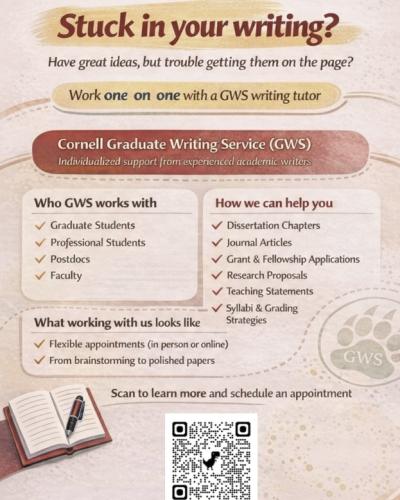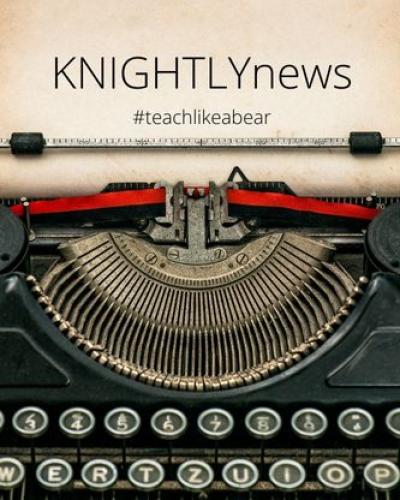The KNIGHTLYnews is an online forum where FWS instructors and other teachers of writing can swap and share ideas for best classroom practice. Weekly posts are designed to help teachers develop lesson plans and writing assignments, and respond to classroom challenges by introducing new teaching tools and sharing emerging pedagogical ideas. Posts also direct readers to program and campus resources that support teaching and learning, and provide opportunities for peer collaboration and mentorship.
A common question among FWS instructors this semester is whether or not they can ban students from using ChatGPT or other AI-assisted writing tools and resources in their FWS.
The simple answer is yes. The Knight Institute encourages FWS instructors to design course policies that best suit their teaching and learning goals. That said, I also urge FWS instructors to carefully consider the possible implications of a total ban on AI-assisted tools and resources, given that:
- A complete ban on AI-assisted writing tools and resources could disproportionately affect our most vulnerable FWS students.
- A complete ban on AI-assisted writing tools and resources could disrupt efforts to create inclusive learning environments.
- A complete ban on AI-assisted writing tools and resources could undermine a FWS classroom culture built on the kind of trust that fosters exploration, co-inquiry, and risk-taking.
- It is not possible to enforce a complete ban on AI-assisted writing tools and resources.
__________
A complete ban on AI-assisted writing tools and resources could disproportionately affect our most vulnerable FWS students.
Writing Studies research has long documented the very different attitudes that students from diverse socio-economic and ethnic/racial/cultural backgrounds have about using campus resources to support their development in writing. Student writers from at-risk groups are less likely to seek out more conventional forms of supplementary instructional support.
For some, visiting the writing center, attending office hours, and sharing drafts with peers or classmates is a comfortable, pleasurable part of the learning process. But for others, such activities have negative connotations. Some students may feel shame or insecurity about their writing skills, regard asking for help to be a sign of weakness, and/or are embarrassed about less robust college preparation. Further, and perhaps more concerning, is that some students can access support more privately, by paying for tutors or seeking assistance from family members, whereas others may not have access to financial resources, or family or friends with time or academic experience or skills.
AI-assisted writing tools and resources, when used ethically, responsibly, and appropriately, can provide essential support for some of our most vulnerable FWS students.
A complete ban on AI-assisted writing tools and resources could disrupt our efforts to create inclusive learning environments.
In my classrooms and offices, I have observed the many surprising and innovative ways that English language learners and students with learning disabilities and diverse learning styles are using AI-assisted writing tools and resources to improve language proficiency and academic performance.
From a neurodiverse student, for instance, I learned that AI-assisted writing tools created opportunities for her to explore organizational approaches for drafts and locate through lines in notes. From a student with learning disabilities, I learned that AI-assisted writing tools helped him reach toward stronger reading comprehension and written clarity. And from many multilingual students, I have learned that AI-assisted tools enabled them to better grasp academic and conversational idiom, syntax, and grammar.
Perhaps all writers transitioning from high school to college (our FWS students!) could usefully benefit from AI-assisted writing tools and resources that hold the potential to open up additional learning opportunities and diminish educational disparity -- and especially so with constructive instructional guidance.
AI-assisted writing tools and resources, when used ethically, responsibly, and appropriately, can enrich FWS classrooms by enhancing opportunities to support student writers from a wider range of backgrounds.
A complete ban on AI-assisted writing tools and resources could shift productive student-teacher dynamics in ways that undermine a FWS classroom culture built on the kind of trust that fosters exploration, co-inquiry, and risk-taking.
In her Chronicle of Higher Education article, “Forget About Policing Plagiarism, Just Teach,” Compositionist Rebecca Moore Howard warns that “In our stampede to fight what The New York Times calls a "plague" of plagiarism, we risk becoming the enemies rather than the mentors of our students; we are replacing the student-teacher relationship with the criminal-police relationship.” Though Howard’s words were, in 2001, in response to “mass hysteria” over Internet plagiarism and the growth of a “gotcha industry” (plagiarism detection websites like Turnitin.com), she could have easily written these cautionary words about generative-AI today. Twenty years later, we are again called upon to decide who we want to be as writing instructors – mentors or police – and who we see sitting in our classrooms – students or criminals.
To be clear, opting to see ourselves as teachers and the people on our course rosters as students is not a decision to ignore inappropriate uses of AI-assisted writing tools and resources or plagiarism more generally. As Howard wrote “Now, a downloaded paper [or a paper written with Chat GPT] is something that no professor should tolerate. It has to be punished. We assign papers so that our students will learn from the experience of writing them; if they do not write them, they do not learn.” But resisting a preoccupation with punishment is a decision that can grant FWS instructors permission to spend our time and labors instead exposing students to good writing and creating opportunity and instructional support to explore, expand, and experiment with writing strategies and assignments that will challenge them to reach toward clear, controlled, and effective written communication.
FWS classrooms that explore ethical, responsible, and appropriate uses of writing tools and resources can prepare first-year students for the writing challenges they will encounter in future academic, professional, and civic spaces.
It is not possible to enforce a complete ban on AI-assisted writing tools and resources.
Given that the capabilities of generative-AI are quickly evolving, the reality is that it is difficult, if not impossible, to detect AI-generated material with confidence. AI-assisted writing tools are getting better by the minute at producing what looks and sounds like natural human writing, especially when the people who are prompting are fairly good at explaining to the AI bot what they want.
More urgently, however, is that AI-detection tools are not reliable. As Eric Wang, Vice President of AI at Turnitin (a premier plagiarism detection service) explains, AI writing is designed to be an “extremely consistently average” version of human writing; detectors like Turnitin’s are programmed, according to Wang, to identify “when writing is too consistently average.” Of concern, of course, is that some human writers and some writing scrawled by humans could be “consistently average.” Consider the syntax and discourse patterns typical in certain disciplinary genres. Wang, for instance, observes that in “economics, math and lab reports, students tend to hew to set styles, meaning they’re more likely to be misidentified as AI writing.” (See Geoffrey A. Fowler’s April 3, 2023 Washington Post article titled “We tested a new ChatGPT-detector for teachers. It flagged an innocent student.”)
Furthermore, Stanford University Data and Computer Science Professor James Zou found in a recent study that “AI detection tools are severely biased [...] and inaccurate when it comes to non-native English speakers. AI-detection programs evaluate text perplexity, he explains, and AI-detector algorithms are more likely to flag writing that registers on a low-perplexity level (Wang’s “extremely consistently average” human writing), writing that may be more common among writers who are developing language fluency in academic English. As Zou rightly argues, “The detectors are just too unreliable at this time, and the stakes are too high for the students […]” (See Andrew Paul’s July 11, 2023 Popular Science article “AI plagiarism detectors falsely flag non-native English speakers.)
FWS classrooms should be spaces where first-year students can explore the conventions of writing in and across disciplines and where multilingual writers, and indeed all writers, can find opportunities to reach toward greater complexity at the word and sentence levels.
__________
So, perhaps the question should not be can I completely ban students from using ChatGPT or other AI-assisted writing tools and resources in my FWS, but rather should I completely ban students from using ChatGPT or other AI-assisted tools and resources in my FWS given that:
- AI-assisted writing tools and resources, when used ethically, responsibly, and appropriately, can provide essential support for some of our most vulnerable FWS students.
- AI-assisted writing tools and resources, when used ethically, responsibly, and appropriately, can enrich FWS classrooms by enhancing opportunities to support student writers from a wider range of backgrounds.
- FWS classrooms that explore ethical, responsible, and appropriate uses of writing tools and resources can prepare first-year students for the writing challenges they will encounter in future academic, professional, and civic spaces.
- FWS classrooms should be spaces where first-year students can explore the conventions of writing in and across disciplines and where multilingual writers, and indeed all writers, can find opportunities to reach toward greater complexity at the word and sentence levels.
__________
For more on generative AI, follow this link to Guidance for AI Best Practices in FWS in the Knight Institute's Indispensable Reference for FWS Instructors.




